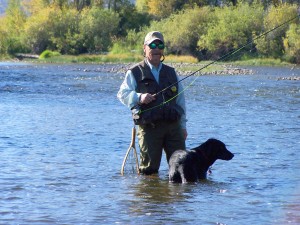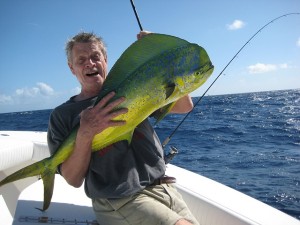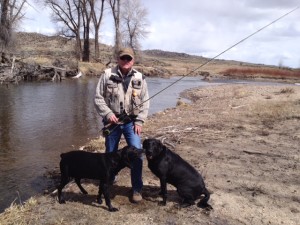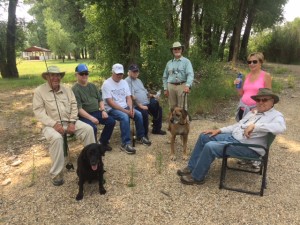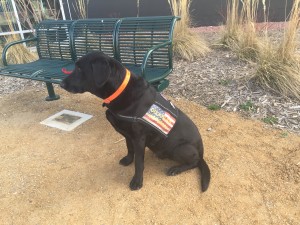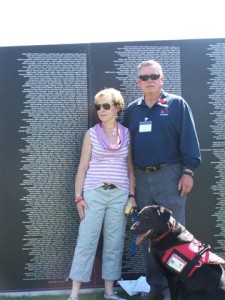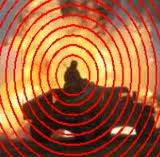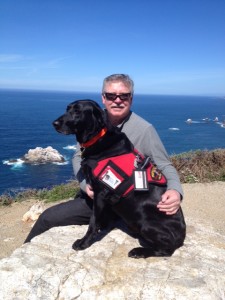Nov
7
5 Reason Why Veterans Need To Be Fishing
Filed Under Brain Injury, Combat PTSD, Dogs, Fishing Therapy, Military, Nature, PTSD, Service Dogs, Tears, Tears of a Warrior | Comments Off on 5 Reason Why Veterans Need To Be Fishing
Guest Blog by Jon Sutton
Author: Travis Pike
Veterans are a unique group of people who face a variety of unique challenges in their lives. As unique as veterans maybe they do share the ability to benefit from an activity as old as civilization. We call it fishing. Here are 5 reasons why Veterans need to get out there and fish more.
Getting Outside
Something as simple as getting outside and in nature can be a major benefit to your psyche and even your body. Getting outside doesn’t just mean walking out of your home, it means actually getting out in nature.
First, you get better air in the countryside than the city. There is no smoke, smog, or ground level ozone to worry about. As a veteran, you may have been exposed to harsh chemicals, and of course burn pits. Fresh air can help reduce the symptoms of most chronic respiratory illnesses.
You’ll also get a healthy dose of sunshine. Sunshine provides you with a blast of vitamin D, a vitamin associated with bone health. The average adult is likely vitamin D deficient, something I learned from my VA Doctor. A little sunshine can go a long way to long lasting health. That being said, don’t forget the sunscreen, you know what they say about too much of a good thing.
Getting Physical
PT it’s good for you and good for me. With almost 80% of the veteran population being obese a little PT can likely go a long way. Most people may think of fishing as sitting in a chair and drinking a beer, but they’d be wrong. There is a big difference in fishing and getting buzzed in a boat.
When you’re fishing you can be involved in any number of strenuous activities, including wading through water, paddling a kayak, and or hiking to a premier fishing location. That’s just to get to you to where you start fishing, from there you start working the shoulder and arms by casting over and over.
Plus, once you get a fish the cardiovascular activity starts as you fight that big boy to the boat or the shore. Watch any fishermen catch a keeper, and look how he sweats and struggles. It may not be as bad a Platoon Sergeant Death Run at 5 a.m. but it’ll get you huffing and puffing.
Relax a Little
Ah, greeting the great outdoors with a fishing pole in one hand a tackle box in the other is an amazing way to relax. Veterans on average face the stress of everyday life, and with a high percentage of veterans facing stress, depression, and anxiety the ability to relax is sacred. Heck, just talking on the phone with the VA is enough to drive you mad.
Fishing has shown to reduce cortisol, a hormone associated with stress by over 30% for up to a month. A study by the University of Maine showed fishing reduced anxiety, stress, fear, and guilt by a substantial amount for up to 3 weeks in combat veterans.
On top of everything fishing reduces, time in the sunshine has proven to release a chemical known as serotonin. The theory is that serotonin improves moods and triggers happy thoughts.
Keeps You Sharp
Young veterans face higher rates of TBI than the average population, which can result in reduced levels of cognitive ability. Let’s not forget that the Vietnam generation has reached an advanced age and with age often comes reduced cognitive function.
Fishing provides stimulation to the brain that engages a wide variety of different senses and forces fishers to use reasoning, and make logical assumptions. Fishing also boosts self-esteem and confidence.
Cause Fish are Delicious
Everyone loves good food, that’s true. This may not be specific to veterans because fish is delicious. Fish is also packed with protein and is low in calories and cholesterol. It’s also full of healthy fats, like Omega 3 acids that help with joint health. Any infantry veteran will tell you their joints suck, so they need all the help they can get.
Mar
23
TED TALKS AND PTSD
Filed Under Brain Injury, Dogs, Post-Traumatic Stress "Injury", PTSD, PTSD treatment, Service Dogs, TBI & PTSD, Tears of a Warrior, TED Talk, Vietnam Today, Wounded Warriors | Comments Off on TED TALKS AND PTSD
By Janet J. Seahorn, Ph.D
 TED (Technology, Entertainment, Design) is a global set of conferences run by the private non-profit Sapling Foundation, under the slogan “Ideas Worth Spreading”.
TED (Technology, Entertainment, Design) is a global set of conferences run by the private non-profit Sapling Foundation, under the slogan “Ideas Worth Spreading”.
 It continues to be an overly busy few months. We are waiting for things to slow down a bit, yet, as soon as we are done with one “To Do List” another pops up with an even bigger task sheet. It begs the question as to whether we are really that harried, or if we are more easily exhausted because we aren’t all that youthful any more. OK, don’t go to that disheartening place.
It continues to be an overly busy few months. We are waiting for things to slow down a bit, yet, as soon as we are done with one “To Do List” another pops up with an even bigger task sheet. It begs the question as to whether we are really that harried, or if we are more easily exhausted because we aren’t all that youthful any more. OK, don’t go to that disheartening place.
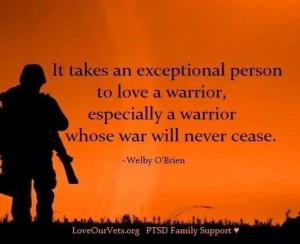 A few weeks ago, I had the opportunity to do a TED Talk at Colorado State University where I’m a professor in the Education College. Of course my topic was Post Traumatic Stress. After months of putting together the talk and multiple practice sessions, the day finally arrived. Truthfully, when I was first accepted as a speaker I was quite excited. As the day for the TED event grew closer I became more anxious. It wasn’t the fear of talking in front of large groups of people – we do that often. It was trying to fit twenty years of research and essential information into a fifteen minute timeframe that drove me to panic. This was more like the old television show, Name That Tune, in which the contestant was given only the first three or four notes of a song and expected to know its name; a seemingly impossible task for discussing Post Traumatic Stress and its effects on the brain, body, and spirit.
A few weeks ago, I had the opportunity to do a TED Talk at Colorado State University where I’m a professor in the Education College. Of course my topic was Post Traumatic Stress. After months of putting together the talk and multiple practice sessions, the day finally arrived. Truthfully, when I was first accepted as a speaker I was quite excited. As the day for the TED event grew closer I became more anxious. It wasn’t the fear of talking in front of large groups of people – we do that often. It was trying to fit twenty years of research and essential information into a fifteen minute timeframe that drove me to panic. This was more like the old television show, Name That Tune, in which the contestant was given only the first three or four notes of a song and expected to know its name; a seemingly impossible task for discussing Post Traumatic Stress and its effects on the brain, body, and spirit.
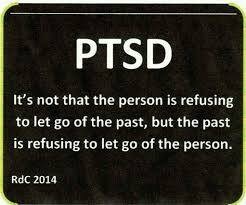 As I entered the stage area I felt like Katniss from the Hunger Games, going into a life and death battle without the proper equipment. You will have to listen to the talk (the information is in this blog), to see the results. Be sure to go to watch the very end for a surprise appearance of our service dog, Bailey. Tony, unbeknownst to me, brought him to the event and sent him up on stage at the very end of my talk. OMG!!!!
As I entered the stage area I felt like Katniss from the Hunger Games, going into a life and death battle without the proper equipment. You will have to listen to the talk (the information is in this blog), to see the results. Be sure to go to watch the very end for a surprise appearance of our service dog, Bailey. Tony, unbeknownst to me, brought him to the event and sent him up on stage at the very end of my talk. OMG!!!!
Ted Talk: 15 minutes worth hearing!
Understanding PTSD’s Effects on Brain, Body, and Emotions | Janet Seahorn | TEDxCSU – YouTube
https://m.youtube.com/watch?v=BEHDQeIRTgs
Jul
28
HEARING LOSS – THE TRULY SILENT WOUND
Filed Under Brain Injury, Combat PTSD, Dogs, Healing, Hearing Loss, Heroes With Hearing Loss, Service Dogs, Tears, Tears of a Warrior | Comments Off on HEARING LOSS – THE TRULY SILENT WOUND
by Janet J. Seahorn, Ph.D
Much of the time we write about the challenges of Post-Traumatic Stress, a silent wound no one can see, yet its effects can consume a person’s mind, heart, spirit, and even soul. However, there is a very physical silent wound that many individuals face, especially veterans who have been in combat zones where IEDs, bomb & RPG blasts and other tragic events cause a physical hearing loss.
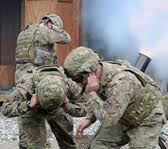 Losing any of our senses makes negotiating the daily routines of life much more difficult. And losing the loss of hearing separates one from the ability to participate in the most common of daily tasks. Simple activities like going to the store and trying to communicate with the checkout person, or straining to understand what your waiter is telling you at a restaurant can be challenging. Consider, also, what it takes to have a conversation on the phone. Most of us take these common everyday tasks for granted. Thanks goodness for new technologies like texting.
Losing any of our senses makes negotiating the daily routines of life much more difficult. And losing the loss of hearing separates one from the ability to participate in the most common of daily tasks. Simple activities like going to the store and trying to communicate with the checkout person, or straining to understand what your waiter is telling you at a restaurant can be challenging. Consider, also, what it takes to have a conversation on the phone. Most of us take these common everyday tasks for granted. Thanks goodness for new technologies like texting.
It was an early Friday morning and I was heading to the airport to catch a flight to Louisville, Kentucky. Tony had accepted an invitation for both of us to speak on several panels regarding hearing loss and combat veterans. In between the acceptance and the trip, he got a special opportunity to spend ten days in Alaska fishing for salmon and halibut. This proved to be an offer he couldn’t refuse. So you guessed it, I was doing this one alone, kind of like Tonto without the Lone Ranger.
Once I arrived in Louisville I had the wonderful privilege of spending several days with four wounded veterans and three of their wives. All of the vets had severe hearing loss from an IED explosion or near a suicide bomber, and one who had contacted an unusual illness that caused him to lose his hearing due to the cartilage in his body being eaten away. Three of the four vets also suffered with pretty severe traumatic brain injuries.
 What was quite amazing about this group was not what they had lost, but how far they had come in addressing their condition and moving forward. And to make this situation even more remarkable was that each had a wife who was incredibly supportive and tenacious on making sure that her husband fought for his recovery as she helped fight for appropriate services in the healing journey. One of the wives had a Master’s degree in Occupational Therapy while another had a background in working with the deaf and was skilled at sign language and other techniques to use when working with individuals faced with hearing loss.
What was quite amazing about this group was not what they had lost, but how far they had come in addressing their condition and moving forward. And to make this situation even more remarkable was that each had a wife who was incredibly supportive and tenacious on making sure that her husband fought for his recovery as she helped fight for appropriate services in the healing journey. One of the wives had a Master’s degree in Occupational Therapy while another had a background in working with the deaf and was skilled at sign language and other techniques to use when working with individuals faced with hearing loss.
What was an Aha Moment for me after being around these couples is the fact that there are “tip” sheets to assist with adjustments to hearing loss.
-Tips like stand still and face the individual with whom you are talking.
-Talk clearly.
-Try to keep to the point and don’t overuse words.
Darn, these were things Tony and I learned the hard way. I could have benefited knowing these years ago. The list reminded me of training our dogs… you do the same things… when giving directions or a command. Stand still. Use minimal words such as stay, sit, down, eat, kennel, etc…Kind of showed us that training ourselves sometimes is very much like training our animal friends.
For any person with a hearing loss and especially our returning veterans and families, get informed about all the new technologies and assist devices that can greatly enhance the ability to function. If you are in this category you will have to be your own fervent advocate. If you aren’t satisfied with your services, keep pushing for any new ideas or programs that are available. Do your Google searches. The Veteran Centers are pretty overwhelmed with the number of veterans needing services, therefore, you will need to be the bull terrier not willing to give up or give in until you are convinced all that can be done, has been done.
Adapted hearing devices are available through many American companies. One such organization is Hamilton CapTel. It produces a caption phone that has been a Godsend to Tony. Hamilton CapTel has just launched a new program called Heroes with Hearing Loss www.heroeswithhearingloss.com The program focuses on education and information for navigating the world of the hard of hearing. Take a look at their video. You may even want to “Like” them on Facebook to get more information.
http://www.multivu.com/mnr/62613-heroes-with-hearing-loss-new-program-debuts-vfw-national-convention
In the end I am reminded of a quote by Joseph Fort Newton. It clearly captures the essence of so many of our military personnel and their families who continue to wake up every day and courageously move forward toward their personal healing and their mission of making a difference for others.
“We cannot tell what may happen to us in the strange medley of life. But we can decide what happens in us, how we take it, what we do with it —– and that is what really counts in the end.”
Apr
17
CAN YOU HEAR ME NOW?
Filed Under Aging, Brain Injury, Combat PTSD, Events, TBI & PTSD, Tears of a Warrior | Comments Off on CAN YOU HEAR ME NOW?
by Tony Seahorn
Every once in a while we get presented with a special opportunity that may change or at least have an impression on our lives. This happened to me a few weeks back. I was asked to be a member of a panel of veterans who had hearing loss and tinnitus due to combat exposure. The panel was part of the National Joint Defense Veterans Audiology Conference (JDVAC) which is held around the country each year. This year’s event was held at the Omni Hotel in Dallas,Texas.
Of the six veterans participating on the panel, all of us also had PTSD and a couple with TBI. We all agreed that most veterans with severe hearing loss have other scars from war that often add to the severity of individual disabilities.
From the time we arrived we were treated like royalty: beautiful rooms, a basket of goodies delivery shortly after we arrived, and even free coffee and lattes. Unfortunately, Jan was unable to go with me due to her teaching commitments at CSU. I’m not sure whether she was most jealous of the basket of goodies or all the free lattes she could have during my three days at the conference.
Maybe I should backtrack a bit. Ever sinceVietnamI have struggled with tinnitus, ringing in my ears. For the most part I have been able to endure the buzzing in my ears, that is until last November. One night I went to bed with the “normal” ringing. However, in the morning I awoke with the sound being far worse than ever and I had lost most of my hearing in my right ear. My hearing loss was also accompanied by dizziness.
After several doctor visits and antibiotics, I was told that the ringing would probably never get much better and my hearing would not fully return. Fast forward a few months and this special opportunity to be a part of a conference with some of the best hearing specialists in the country.
My panel was made up of eight individuals: two audiologists and six veterans. Each panel member contributed, not just telling their combat story, but how being hearing challenged impacted their lives. The entire session was taped and will be presented in a video and streamed on the sponsor Hamilton CapTel® Web site which will reach hundreds if not thousands of viewers throughout their network.
Following the conference, one veteran wrote in an e-mail …Our feeling is that we have to start somewhere with this important message. Hopefully, as we look back at our endeavors a year from now, we’ll see encouraging progress that not only includes larger veteran audiences for this panel at industry events – but more importantly, increasingly open “solutions” dialog between hearing health care professionals and the veterans they serve.
For all of you vets who are living with a hearing problem, I truly believe help and hope is on the way. I found that support and optimism in Dallas. The experience has been such a blessing. To think I almost didn’t attend this event.
Following is a message from Judi Victor in her capacity of Panel Director:
Hi, JDVAC Holistic Panel Team!
Tina and I are having trouble finding the right words to thank you for your participation in the Holistic Hearing Healthcare Panel at JDVC on Tuesday. Each of you contributed so much to the discussion; we can’t imagine a more articulate, informed, bright or inspiring group. It was, indeed, impressive – and to think that the entire panel had never rehearsed together until a few hours before the actual event is truly amazing!
Even though our “live” audience was not gigantic, please keep in mind that we are editing the video presentation to stream on the Hamilton CapTel® Web site, which will reach hundreds if not thousands of viewers. In addition, the video will be shown in part or in its entirety at other industry events throughout the coming year.
Our feeling is that we have to start somewhere with this important message. Hopefully, as we look back at our endeavors a year from now, we’ll see encouraging progress that not only includes larger veteran audiences for this panel at industry events – but more importantly, increasingly open “solutions” dialog between hearing health care professionals and the veterans they serve.
We know that this event required a huge effort on your parts, not to mention the fact that it took you away from your work, families and many other activities. Please know that your participation is appreciated more than we can ever express.
With warmest regards and deepest gratitude.
Oct
7
WARRIOR DEDICATION
Filed Under Brain Injury, Combat PTSD, PTSD treatment, TBI & PTSD, Tears of a Warrior | Comments Off on WARRIOR DEDICATION
by Janet J. Seahorn, Ph.D
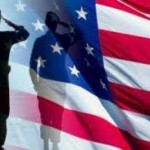
Here is a question to think about…how many of you would take your entire retirement in one lump sum and then put it into a facility that would serve as a place of support, safety, and relaxation for our country’s vets?
This special place would require quite a bit of work. You would need to paint the walls, put in new furniture that would be comfortable and calming, and develop programs that would facilitate a wounded warrior’s emotional and physical well-being.
Such a facility would need quiet places where an individual could find the best environment to heal. For instance, one room would serve as a large conference room for presentations and discussions. Another would be a smaller area with a number of large reclining couches as well as chair recliners. My favorite happens to be a room with three oversized, state of the art massage recliners.

Each of the two “relaxation” rooms is equipped with head phones to listen to select music of choice under dim lighting. Small water fountains provide a sense of a quiet, flowing river. A large screen TV scrolls messages of hope and inspiration. Every detail was thoughtfully conceived to provide a special place of peace.
And here is the amazing thing, the person who has formed this sanctuary does not charge one cent for a veteran or family member. The Warrior Relaxation Response Center is located on the south side of Colorado Springs, CO, close to Fort Carson military base. It has been open barely a year. To continue to provide these services, the owner, Antoine Johnson, is desperately trying to obtain grants from various organizations as well as the army’s military base.
With a challenging economy, this will be no easy task. As Antoine tells it, “It is a true leap of faith”. He explains that he simply loves the military men and women who served our country. He and his wife spent many years in the army, fought in Desert Storm, and then became teachers. Working with traumatized children became his specialty. Many of the children came from military families torn apart by combat deployments, with parents returning with TBI and PTSD. Antoine saw a calling to help those returning from war to achieve a more stable and balanced life.

Last Thursday we were invited to visit the center and speak to some of the veterans and their families. Young and old were present, each with a story of trauma The flashbacks, the lack of understanding from family and friends who have not had to endure war, the numbing of the senses just to get through the day, and the sometimes overwhelming anxiety of not knowing when the next emotional attack will occur.
Throughout our country there will be an even greater need for more centers like the Warrior Relaxation Response Center A place where an individual can visit to simply be alone and find some solace. A place where he/she will not be judged, asked questions, or encouraged to just get on with living. Sometimes, as Antoine understands, a warrior simply needs a quiet space. Healing takes time, often a lifetime.
For those who want to contribute to support this mission or learn more about the facility please contact Antoine Johnson: http://www.warriorrrc.com
May
19
TOUCHED BY COURAGE
Filed Under Brain Injury, Combat PTSD, Events, Family, Giving, Life, Love, PTSD, TBI & PTSD, Tears of a Warrior, Trauma, Veterans, Wisdom | Comments Off on TOUCHED BY COURAGE
by Janet J. Seahorn, Ph.D

A few weeks ago, Tony and I spent several days in the Grand Strand area of Myrtle Beach, South Carolina.
It was Military Appreciation Week.
Due to the special invitation of Retired Army Officer Sinclair Swan, we had the privilege of working with two local groups of military veterans, their spouses and family members.
During the day we met with several group members and their spouses. It was an amazing opportunity to not just speak to the individuals in attendance, but to listen and hear their stories as well. Each account reminded us of the enormous amount of courage it takes to get up each day, live it as best one can, and give back to others.
Two of the veterans have adult children who experienced traumatic car accidents which left them with severe head injuries. These vets are now the primary care givers. Not only have they endured their own trauma; now they must bear the suffering of their children. Several are challenged by serious health issues for them and/or their spouses.
Yet, they continue with great effort and fortitude to move forward. It is a humbling gift to have others shares their trauma and heartbreaks.
Contrary to some public perspective, most of these vets have lived and are living successful and productive lives. In spite of their demons, they have deliberately chosen to not let the past destroy the future. They have elected to make a difference for themselves, their families, their communities. Sinclair Swan meets every Saturday with vets who need help in filling out government forms to obtain services. Each has made significant contributions to serving others.
One individual wrote a special poem many years ago. Upon returning from Vietnam he described how he became homeless, sleeping in parks, and getting his “fixes” when needed. Then, one day, another homeless friend suggested they go to a church soup kitchen for a meal. It was there that a miracle occurred and his life changed. He got his faith back, his spirit, and eventually his life. At that time he wrote a poem which he has allowed us to share with you.
A Poem
By William Huffaker
If I only had one wish to make,
but that wish would surely come true.
I’d wish that I would be given the light
to turn the darkest sky into blue.
Now to you this may sound
like my mythical dreams
have blurred my vision
so that this only seems
to be an illusion
of hopeful abound,
and that my wish
I’ve not really found.
But I’ve found it I tell you.
As I’ve sought it in truth.
And I know now this answers’
been here since my youth.
But I just couldn’t see
through the clouds in my mind.
Through delusions of grandeur
I just couldn’t find.
This fabulous dream
that just had to be,
waiting and knowing,
someday that I’d see.
And even though skies
still sometimes turn black.
And visions of grandeur
still sometimes come back.
I know that there’s light
in the darkest of night.
And the tenderest loves
never far from my sight.
And now that my dream
has become something true.
If I had one more wish,
I would wish it for you.
Sep
5
IF YOU’RE NOT OK, THEN WE’RE NOT OK
Filed Under Black Lions, Brain Injury, Combat PTSD, Family, Life, PTSD, PTSD treatment, Tears of a Warrior, Treating PTSD, War | Comments Off on IF YOU’RE NOT OK, THEN WE’RE NOT OK
by Janet J. Seahorn
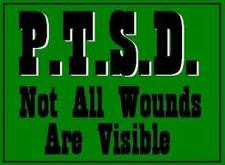
Every day there are more and more wounded victims of war. These are the spouses, the children, the parents, the sisters and brothers of the veteran… and the list grows. It is one reason that we continually urge those impacted by serving in a war zone to get help as soon as possible if they begin to feel the “fall out” effects of combat.
There are centuries of evidence that prove this point. When a person returns from a traumatic experience and normal life is no longer normal, those around will become part of the trauma. It is an obvious statement, yet, there are too many veterans and families that refuse to acknowledge and deal with the situation.
It is like having an elephant in the room that no one wants to recognize or admit is there. The unrealistic thinking goes something like this… “If I just ignore the large problem, it will eventually go away”. The only problem with the problem is that it does not go away, in fact, it often grows bigger and bigger. And it begins to become more active. Imagine having a raging elephant in the room charging around with its large tusk and huge trunk. Wow, and I haven’t even mentioned all the crap it leaves lying around. It feeds on everything in sight, so eventually your house is a mess and you don’t have a safe place to hide from the growing beast.
Human nature seeks coherence and peace, even in the most chaotic of times. It is always looking for that which is safe and enjoyable. It craves stability and excitement, joy and delight. When these are absent for long periods of time, it is easy for depression and hopelessness to set in. You see, if someone you deeply care about is not OK, then it is quite challenging for you to be OK. And if both of us are not OK, then WE, as a couple, a family, a relationship, are not OK! Herein lies the hard choice — you can either accept the “crap” and continue on the path you may currently be on, or you can make another choice. A choice that can lead to healing. A choice that may allow the relationship to be more positive and loving. A choice that begins to do something about THAT elephant in the room.
Either way, we all choose which way we will continue our journey. Whatever choice we make will not be an easy path. However, one definitely has more constructive possibilities than the other. We persistently mention that if children are involved, than getting the elephant out of the room is crucial to their well-being and healthy development. As adults, we make our own choices, but children are subject to the outcomes of our choices. More than likely, they don’t get to have a voice; they are the helpless victims of our selection, good and bad. Therefore, think deeply about what you are and are not doing. Your children’s lives depend on which options you make.
For some of us, we didn’t have the information about PTSD, TBIs (Traumatic Brain Injuries), and other impacts of war. We did the best we could; at least, we want to hope we did. New military personnel have better information. They can and must make better choices, if not for themselves, for their children and the future of our next generation. Healthy life truly depends on this choice.
Jun
30
PTSD Series Discussion #5
Filed Under Brain Injury, Combat PTSD, PTSD, PTSD treatment, TBI & PTSD, Tears of a Warrior, Treating PTSD, War | Comments Off on PTSD Series Discussion #5
By Janet J. Seahorn
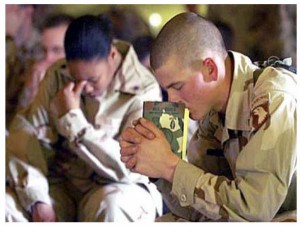
When is it time to seek outside help?
This is pretty easy to answer: You will know if it is time to seek outside help when the behavior of the serviceperson becomes abnormally un-normal. When life becomes a teeter-totter of ups and downs that can’t seem to be controlled no matter how hard you try. When your surroundings and relationships seem unstable and unsafe and you aren’t sure why, get help.
When my husband began experiencing PTSD, neither one of us had a clue what was going on at the time. There was no such thing as Post-Traumatic Stress. War was something that a person went to, came home from and tried to move on. It wasn’t discussed. It wasn’t thought about (or so we once thought and wanted to believe).
No one considered how the events of combat could impact an individual for the rest of his life. If you came home somewhat physically whole, that was a gift. You healed physically, and you lived as if all the horror from battle never happened. The past was the past and it should not impact one’s future. What an absurd assumption.
Now we understand that nothing in our past is ever fully in the past. The good and the difficult follow us wherever we go. We are part of our experiences. With understanding, courage, and information we may gain strength and wisdom to move forward. Getting outside help can guide us in forming the wisdom and understanding needed for healing.
What are some good resources for help with PTSD or TBI?
There are many resources available to our military service men and women. Check with your local Veteran’s Administration Center if you suspect you need support. You may need to be referred to a Veteran Hospital for further testing and diagnosis, especially if you suspect a traumatic brain injury. Every state has several local centers that have been established to help veterans find the appropriate placement and support needed to get the services they may require. (VA Centers are listed in our book)
Don’t stop at NO if you are convinced you have something wrong that necessitates some form of treatment. Sometimes all you need is that one special person who can take your situation seriously enough to get help. Our family personally saw this happen with my brother. He was extremely wary of anyone associated with the government. As a Vietnam vet, his mistrust of a broken, ineffective system made him reluctant to seek help from a military or veteran organization of any kind. Once he decided to seek services he ran into several brick walls. Yet, he kept trying, until he finally found a former army sergeant who took his situation seriously and made things happen.
It only took one person to make a difference. Don’t’ give up or give in to frustration. Keep going. Help is available, but sometimes you may have to fight for it just like you did in battle. If you did it then, you can do it now.
In ending, we want to thank you and your loved ones for your service and sacrifice. You have made a difference that few will understand, or perhaps fully appreciate. Nevertheless, please recognize the depth of your courage, strength and warrior spirit. These are the attributes that sustained you through combat, and now they will do so again in moving you towards healing and a better life.
Oct
29
The Grim Reaper: TBI Can Be a Spooky Demon
Filed Under Brain Injury, Trauma | Comments Off on The Grim Reaper: TBI Can Be a Spooky Demon
by Janet J. Seahorn

Several weeks ago I talked about going to a Traumatic Brain Injury (TBI) conference and promised I’d write more about what I learned. Now I feel like the Grim Reaper explaining the various causes and symptoms of a TBI.
Luckily, being Halloween, perhaps the trick is dealing aggressively with the spooks of TBI injuries and the treat is getting better with focus and determination.
Much of this information is taking from a brochure, Brain Injury: How to Recognize and Treat It, by Harvey Jacobs, Ph.D. and Flora Hammond, M.D.
So let’s talk about some of the “tricks” of a TBI. First, it can be due to many causes: falls, car accidents, sports, blasts/explosions, strokes, viruses, or aneurysms (weak spots in the walls of the brain’s arteries and veins).
Since many of our war vets have experienced a TBI mainly from an outside force, I will concentrate on this area. If the force is powerful enough, it can cause bleeding in the brain, bruising, and/or tearing of the brain cells.
“Once a traumatic brain injury occurs,” according to the experts, “there is risk of additional damage over the next several days due to lack of oxygen or reduced blood flow or medical complications”. When a blast occurs due to an IED or other combat offenses, the shock waves move through the brain and injure the soft brain tissue causing cell damage. The person doesn’t have to be unconscious to encounter a TBI, but the results can be quite damaging, nevertheless.
Another trick of this demon is that no two injuries are exactly alike due to the location, size, and impact of the TBI; cells can begin to die within four minutes of losing oxygen because of the impact. Sometimes, if the injury does not appear severe or life threatening it can be missed, yet the results are nothing short of problematic.
The person,” according to Jacobs and Hammond, “may appear dazed or just a little confused for a brief time and then return to work or usual activities. Problems may develop later.” Often times other people notice the problems first, like a spouse, close friend, or employer. What they may notice is problems in the person’s short-term memory, difficulty in organizing and planning, shorter attention span or easily distracted, unclear speech, irritation, anxiety, depression, and other cognitive or emotional behaviors that weren’t present before the injury. Therefore, getting proper diagnosis and treatment is essential to restoring an individual to health and normal activity.
This Grim Reaper can’t leave you with such a dismal TBI spook, so take heart and recognize that help is available. There are more effective and innovative treatments than ever before if treatment begins immediately. Time is crucial. Don’t wait. The major part of the brain’s mending normally takes place within the first two years of the injury, but the brain can continue to mend far beyond that time.
Trust me, having experienced a mild TBI many years ago, I kept engaged with as many cognitive and physical activities as possible and this made all the difference with being able to return to a normal life – the best treat ever.
Oct
13
Brain Trauma, Soul Trauma
Filed Under Brain Injury, TBI & PTSD, Trauma | Comments Off on Brain Trauma, Soul Trauma
by Janet J. Seahorn
 OK, here is something to ponder; can Brain Trauma cause Soul Trauma?
OK, here is something to ponder; can Brain Trauma cause Soul Trauma?
By “brain trauma”, I mean a traumatic brain injury, a verifiable medical condition caused by some insult to the brain, i.e., car accident, falling, hitting one’s head, being in or close to an IED explosion, shaken baby syndrome, stroke… and the list goes on.
Every year over 1.5 million Americans experience some type of traumatic brain injury (TBI).
Personally, I believe the number is higher, as many incidents never get reported because no one knows or realizes that such a trauma has occurred. Which is why all of the information on TBI makes me muse over what actually goes on in the brain/mind, body, and soul when it has been injured?
I think about the mind and wonder how such a magnificent organ can be in command of so much in a person: body, emotions, perceptions…
I think about the soul and wonder how such an invisible concept can make such a difference in one’s life; a difference that gives one strength, courage, and hope to make it through some truly desperate times.
I think about how anyone who experiences a restructuring of the brain after some internal or external trauma can move forward in ways that are nothing short of miraculous. A healing that leaves the brain changed, but the person still functioning.
I think about how the soul and spirit must somehow be part of the healing that takes place in the organ called the brain. How the soul/spirit may give some kind of divine direction to the mind that allows it to mend. In many cases it may not mend itself back to its original state but reorganizes in such a manner that perhaps enhances the individual with greater compassion, humility, and fearlessness.
I’d like to believe that angels watch over us and it is this entity that connects the mind, soul, and heart. Noah benShea thoughtfully noted, “Faith sees around corners”. Maybe these celestial beings are also within the corners of our battered minds, soothing, comforting, and mending.
Most days, though, I am just immensely appreciative that something more powerful than I can ever imagine is taking some charge over all of our well-being, perhaps from that place we call Heaven.


